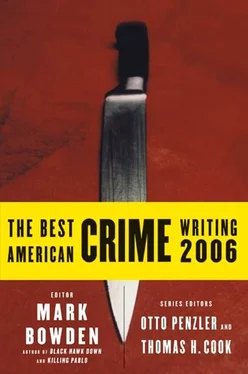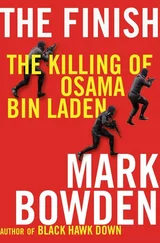For the past two decades, Lessig had kept the story of his abuse a closely guarded secret-especially from his parents. By plunging into the Hardwicke case, Lessig says, he understood that it was likely he would "be forced to confront this with my family; people are going to look at me differently."
The argument before the New Jersey appellate court took place in November 2003. Its essence was straightforward. To Lessig's knowledge, there was no prior case in the history of New Jersey in which the courts had ruled that charitable immunity applied to intentional wrongful acts. And the acts at the school in the seventies, he said, were not merely intentional: The sexual abuse that occurred was "pervasive and institutionalized." If the supreme court granted total immunity in such cases, Lessig concluded, New Jersey could become "a haven for sex abuse by charitable institutions."
When the argument was over, the school's litigator, Jay Greenblatt, told Lessig the performance was "one of the best oral arguments I've heard in my career." Four months later, the three-judge panel sided 2 to 1 with Lessig and Hardwicke, prompting the school to appeal to the state supreme court.
Lessig was in Washington when he learned the news, about to board a train for New York.Ten minutes later, his first victory as a litigator notched in his belt, he was in the bar car, beaming, babbling, buying drinks for everyone.
After hearing so many awful things about the Boychoir School, I drove down to Princeton to hear what its officials had to say in its defense. The school's current president, Donald Edwards, gave me a tour of the grounds.We stopped at the rooms that once made up the Hanson-Lessig suite. "He lived here? You know more than I do about that," Edwards said in a tone of mild shock.
Bearded and bespectacled at sixty-three, Edwards feels beleaguered by the case. "This is the only litigation I've ever gone through, and it's the only one I will ever go through," he said in his genial, soft-spoken way. "It's an adversarial process, and I've built a forty-year career on being nonadversarial."
Edwards joined the school's staff as head of fund-raising and publicity in 1999, then was elevated to president in 2002. In the spring of 2000, a few months after Hardwicke surfaced with his allegations, the school sent out a letter informing the parents and alumni for the first time about the reasons behind Hanson's firing (though it didn't name him).The school encouraged former students to come forward with information about past incidents of sexual abuse (though it didn't disclose that it had, in fact, settled several other lawsuits in the eighties and nineties). And it hired an expert for advice on its child-protection policies.
In April 2002, the New York Times and Nightline, fed leads by Hardwicke, broke the story in tandem. Hardwicke then set up a Web site that further spread the details. The fallout for the school was harsh. Concert bookings evaporated; recruiting students became an uphill slog.
Edwards's frustration with all of this isn't hard to comprehend. The abuse took place long ago; today, the school is safe and ever-vigilant, he says. "The irony is, probably the one person who will never bear any burden if there is a judgment against the school is Donald Hanson," Edwards notes. "The people who are bearing the burden now are our students, faculty, parents, and trustees, none of whom were around in 1970 and 1971."
All of that is true, of course. But one of the legal system's central functions is to allocate responsibility for harms that occurred even decades ago-thus creating incentives for sound behavior in the future.
In any event, it would be easier to sympathize with the school had its fight against Hardwicke not been so vicious-and, at times, so ham-handed. When, for example, the lawsuit was filed, the school's lawyers submitted an official reply that argued that Hardwicke had no case because he consented to the sex with Hanson-and that by not revealing it sooner, he was more negligent than the school. (To be precise, the term the document used was "fraudulent concealment.") Both statements were leaped upon by the Times and Nightline.
"That was very unfortunate," Jay Greenblatt, the school's litigator, tells me one afternoon in his office in Vineland, New Jersey. Greenblatt was appointed to the case by the school's insurance company, which also pays his fees. He came aboard after the reply was written. "It was a boilerplate-type pleading," he limply explains."I don't even know if it was reviewed."
Greenblatt is a past president of the New Jersey State Bar Association.At sixty-eight, he's got a rumbling voice, close-cropped gray hair, and wears a big gold signet ring. He tells me the school would have preferred to settle with Hardwicke, if only to avoid the flood of adverse publicity. But, Greenblatt goes on, "this isn't just a matter of money. His goal is to close the school. I think that he along with his id wants to do it. He's looking to punish someone for what unfortunately occurred to him at the hands of a man thirty-five years ago."
In the absence of the prospect of a settlement, Greenblatt says, the school turned to charitable immunity, which, he maintains flatly, "doesn't apply only to negligence." Besides, he argues, the school can't be held liable for Hanson's private behavior-which he equates with an employee's stopping in a bar after work and slugging someone in the mouth. "Is the company responsible?" he asks. "No.Why not? Because they're not acting within the scope of employment."
If the case does go to trial, Greenblatt clearly intends to wage an assault on Hardwicke's credibility. "I don't know where fact ends and fantasy begins with John," he says."I believe he was molested. I believe that molestation took place in private and that no one knew about it or reasonably should have known about it. However, of course, if he was being molested fifteen times a day in half of the rooms of the institution, it could create the implication that somebody should have known… So the more notorious it was, the better for his case."
Yet despite Greenblatt's assertions to the contrary, what shines through all the school's dealings with Hardwicke is a stark unwillingness to countenance that the plaintiff might be telling the truth. "I don't know a lot about what the school was like in 1970 and 1971," Edwards says. "I do know that the kind of schedule we live with today doesn't leave enough time for what John Hardwicke describes happened multiple times a day. That sort of thing-I just find it very hard to believe."
The night before the State Supreme-Court argument, over dinner in Philadelphia, Lessig tells me he intends to describe obliquely, before the justices, the years-ago conversation in which Hanson said he needed to sexualize the boys for the sake of the choir's splendor. "It shows, however ridiculous it is, that Hanson believes he's doing this for the benefit of his employer," Lessig explains."So it makes the abuse within the scope of employment.
"Now, we don't yet have that conversation in the record," Lessig goes on,"and I'm in this weird position of knowing it. So we're just going to simply say, look, we will establish at trial that fact. And they could say, how do you know you're going to establish it at trial? And then I'm in this very awkward position of having to say why."
And how do you intend to resolve that awkwardness? I ask. Lessig says,"I don't know."
The next morning, at the supreme court, a windowless modern space with walls of marble and frosted glass, Greenblatt argues first. He is peppered with questions and seems at times unfamiliar with his own brief. After thirty-five minutes, Lessig rises to take his turn. At the podium, he reaches down for a paper cup; his hand quivers so violently that water spills en route to his lips.
Читать дальше












